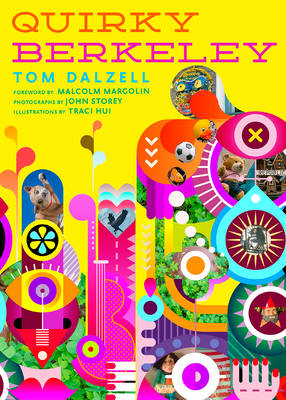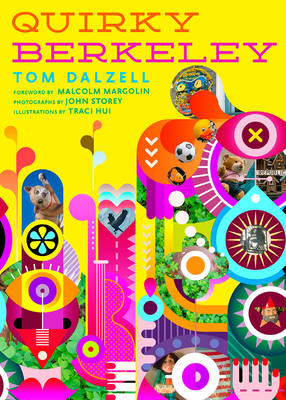
- Afhalen na 1 uur in een winkel met voorraad
- Gratis thuislevering in België vanaf € 30
- Ruim aanbod met 7 miljoen producten
- Afhalen na 1 uur in een winkel met voorraad
- Gratis thuislevering in België vanaf € 30
- Ruim aanbod met 7 miljoen producten
Zoeken
Omschrijving
When it comes to landscaping, why stop at plastic flamingos? Based on Tom Dalzell's blog of the same name, Quirky Berkeley pays tribute to the boldly imaginative artwork on display in front of, on top of, and engulfing residents' houses all over the city. With full-color photographs and a pithy wit, Dalzell shares his discoveries of the unexpected: the giant orange on Spruce Street, a house shaped like a fish, bowling balls as lawn art, enormous dachshund sculptures, and the birdhouse pyramid on Sacramento, to name just a few of the oddities. Created, installed, and maintained at great expense--not just of money, but of time and creative energy--these are all free to view, all gifts to the street. Included in every write-up are profiles of the artists, whom Dalzell is careful to portray not as stereotypical "Berzerkeleyites" but as individuals who have found their true north of exuberant self-expression. While the very uniqueness of each of these sites invites us to focus on the individual creators, the book also considers what the abundance of such art says about a community and its values. This love letter to idiosyncrasy champions the revolutionary idea that we can build a vibrant community not by demanding conformity but by celebrating difference.
Specificaties
Betrokkenen
- Auteur(s):
- Illustrator(s):
- Uitgeverij:
Inhoud
- Aantal bladzijden:
- 112
- Taal:
- Engels
Eigenschappen
- Productcode (EAN):
- 9781597143592
- Verschijningsdatum:
- 1/02/2006
- Uitvoering:
- Paperback
- Formaat:
- Trade paperback (VS)
- Afmetingen:
- 127 mm x 175 mm
- Gewicht:
- 204 g

Alleen bij Standaard Boekhandel
+ 32 punten op je klantenkaart van Standaard Boekhandel
Beoordelingen
We publiceren alleen reviews die voldoen aan de voorwaarden voor reviews. Bekijk onze voorwaarden voor reviews.











